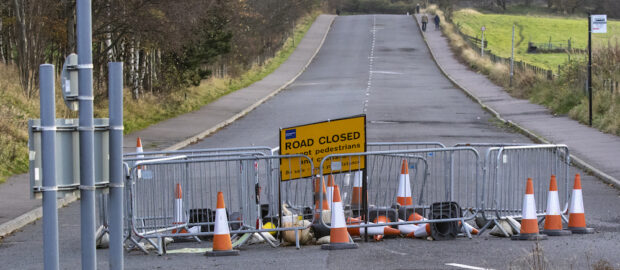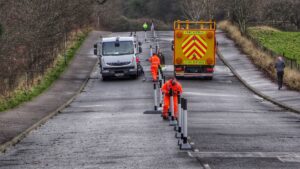Spaces for People measures are set to be in place for a further 18 months – meaning some ‘temporary’ traffic schemes will have been in place for three years before either being made permanent or scrapped entirely.
In May 2020 the Scottish government announced funding for Spaces for People programmes, which aimed to provide safe options for essential journeys during the coronavirus pandemic.
Since April of that year, the council has used the £5m it received from the Scottish government to introduce various road closures and temporary traffic measures using emergency coronavirus powers.
At the time, the council used Temporary Traffic Regulations Orders (TTROs), which allowed them to install temporary bike lanes, wider pavements and road closures for a maximum of 18 months.
The council says residents living near these schemes were able to provide feedback which was then used to alter and improve the schemes, but anti-Spaces for People campaigners and resident’s organisations have complained about the perceived lack of consultation and improvements to the schemes.
Now, as the council approaches the end of the 18-month TTRO period, city planners are looking at extending the Spaces for People schemes for another 18-month period using Experimental Traffic Regulation Orders (ETROs).
The council’s ruling SNP/Labour administration say this is the fairest way to continue Spaces for People measures, as a formal Traffic Regulation Order, which is the usual way road layouts are changed, are permanent.
Last week, the council’s transport convener, councillor Lesley Macinnes, said “We have no intention of pushing through any permanent schemes under the cover of Spaces for People.
“We want to bring the people of Edinburgh along with us.
“That’s why we would be using Experimental Traffic Regulation Orders to implement any longer-term changes, meaning we can continue to involve local people in their operation and evolution once in place.”
However, critics say the council is avoiding the formal TRO process because it would force them to consult with residents ahead of implementing the Spaces for People schemes, unlike the ETROs which can be introduced without prior consultation.
Newly elected Conservative MSP Susan Webber, who as well as representing the Lothians in Holyrood still serves as a Pentland Hills councillor, said:
“I was surprised to learn that the inclusion of a single line in the city mobility plan, ‘creation of segregated cycling infrastructure on arterial routes’, has granted the SNP/Labour council administration the legal basis to use Emergency TROs, allowing them to keep the most controversial Spaces for People Schemes in place for a further 18months.
“This means that for three years families and businesses will face new risks and challenges that they simply did not have to endure.
“I feel betrayed having given assurances to constituents and businesses across the city that this would only be for 18 months, actively encouraging them to make sure their views were heard through the city wide consultation.
“I now have to face these same families and businesses whose lives have been disrupted by these unnecessary schemes and tell them that the SNP/Labour administration are not interested in what they think.
“The SNP/Labour council think they know best. I disagree and will continue to do all that I can to get the most controversial schemes removed.”












